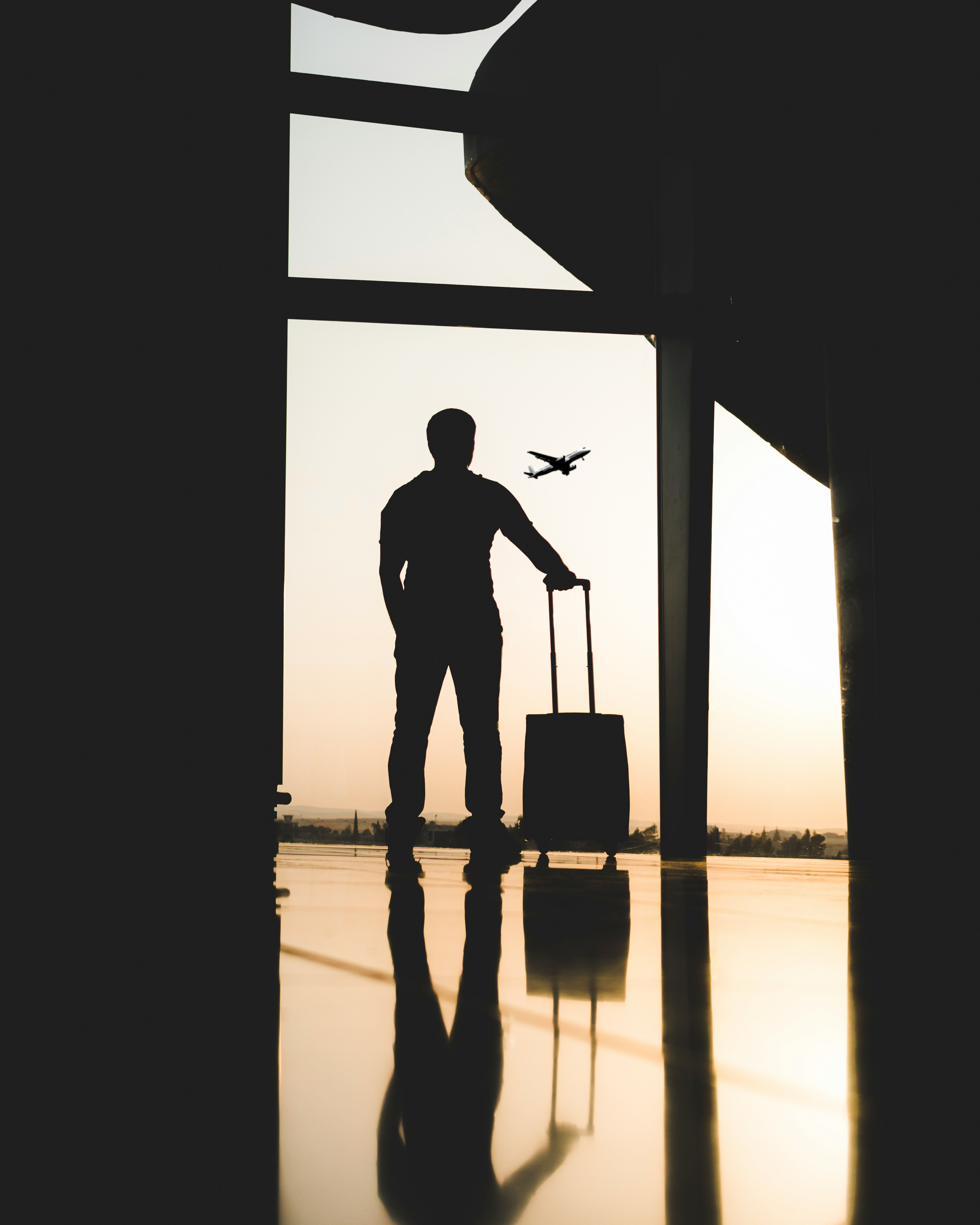In this comprehensive guide, we’ll walk you through effective methods to recover from jet lag and adjust smoothly to new time zones.
Traveling across multiple time zones can be exciting, but it often comes with an unwelcome side effect: jet lag. If you’ve ever arrived at your destination feeling exhausted, disoriented, and out of sync with the local time, you’ve experienced jet lag.
The good news is that you don’t have to suffer through it. With the right strategies, you can reset your body clock and get back to feeling your best. In this comprehensive guide, we’ll walk you through effective methods to recover from jet lag and adjust smoothly to new time zones.
Understanding Jet Lag
Jet lag occurs when your internal body clock, or circadian rhythm, is out of sync with the time zone you’ve traveled to. This rhythm regulates your sleep-wake cycle, and when you cross several time zones quickly, your body struggles to adjust. Common symptoms of jet lag include fatigue, difficulty concentrating, irritability, and disrupted sleep patterns.
The severity of jet lag can depend on several factors:
- Number of Time Zones Crossed
The more time zones you cross, the more pronounced the jet lag can be. For instance, crossing 6-8 time zones can cause significant disruption to your body clock, while crossing 12 or more can make adjustment even more challenging.
- Direction of Travel
Traveling east generally results in more severe jet lag than traveling west, as it’s harder for the body to adjust to an earlier time. When traveling east, you are effectively shortening your day, which can be more disruptive than lengthening it by traveling west.
- Individual Differences
Some people are more susceptible to jet lag than others due to differences in their circadian rhythms and sleep habits. Factors such as age, overall health, and personal sleep patterns can influence how severely you experience jet lag.
- Duration of Stay
The length of your stay at the destination can impact how your body adjusts. Short trips might not provide enough time for full recovery, while longer stays allow for more gradual adaptation.
- Travel Stress
The stress associated with travel, such as flight delays, changes in routine, or lack of sleep before departure, can exacerbate the effects of jet lag and make it harder for your body to adjust.
Understanding the science behind jet lag is the first step in effectively managing and recovering from it. Now, let’s explore practical strategies to help reset your body clock and get back on track.
1. Adjust Your Schedule Before You Travel
One of the most effective ways to minimize jet lag is to gradually adjust your schedule before you leave. This process helps your body adapt to the new time zone even before you arrive.
How to Do It:
- Shift Sleep Times: About a week before your trip, start shifting your sleep and wake times closer to the time zone of your destination. If you’re traveling east, go to bed and wake up an hour earlier each day. If you’re traveling west, shift your schedule an hour later.
- Change Meal Times: Adjust your meal times to align with the local time at your destination. This helps your body adjust to the new schedule more smoothly.
- Expose Yourself to Light: Light plays a crucial role in regulating your circadian rhythm. Try to get sunlight in the morning if you’re traveling east and in the evening if you’re traveling west.
2. Stay Hydrated During Your Flight
Proper hydration can significantly impact how you feel after a long flight. Dehydration can exacerbate the symptoms of jet lag, making you feel more tired and sluggish.
How to Do It:
- Drink Water Regularly: Aim to drink water throughout your flight rather than waiting until you’re thirsty. This helps keep your body hydrated and supports overall well-being.
- Avoid Alcohol and Caffeine: Both alcohol and caffeine can dehydrate you and disrupt your sleep patterns. It’s best to limit or avoid these beverages during your flight.
- Use a Hydrating Mist: Consider using a hydrating facial mist to keep your skin moisturized, as dry air in the cabin can contribute to dehydration.
3. Optimize Your Sleep During the Flight
If your flight is long, try to get some rest on the plane. Proper sleep during the flight can help you feel more refreshed and less affected by jet lag upon arrival.
How to Do It:
- Use Sleep Aids Wisely: If you have trouble sleeping on planes, consider using a sleep mask, earplugs, or a neck pillow to create a more comfortable sleep environment. Avoid using sleep aids or medications without consulting a healthcare professional.
- Follow a Sleep Routine: Try to stick to your usual sleep routine as closely as possible. If you’re traveling east and it’s nighttime at your destination, aim to sleep during the flight. If traveling west, you might need to stay awake and adjust your sleep schedule accordingly.
4. Adjust Your Sleep Schedule Upon Arrival
Once you arrive at your destination, it’s crucial to get on local time as quickly as possible. This helps your body adjust and minimizes the impact of jet lag.
How to Do It:
- Set a New Sleep Schedule: Go to bed and wake up according to the local time, even if you’re not feeling sleepy. This helps reset your body clock and aligns it with your new environment.
- Avoid Naps: Although it can be tempting to take a nap upon arrival, especially if you’re feeling tired, try to resist. Napping can interfere with your ability to adjust to the new time zone. If you must nap, limit it to 20-30 minutes.
- Get Sunlight Exposure: Spend time outdoors in natural light, especially in the morning. Sunlight helps regulate your circadian rhythm and can speed up your adjustment to the new time zone.
5. Eat and Drink According to the Local Time
Eating meals at the appropriate times can help signal to your body that it’s time to adjust to the new schedule.
How to Do It:
- Eat Regular Meals: Try to eat meals at local meal times to help your body get on track with the new time zone. Avoid heavy meals close to bedtime, as they can disrupt your sleep.
- Stay Hydrated: Continue drinking plenty of water to stay hydrated. Avoid excessive caffeine and alcohol, as they can interfere with your sleep and hydration levels.
6. Engage in Light Physical Activity
Physical activity can help alleviate the symptoms of jet lag by boosting your energy levels and improving your mood.
How to Do It:
- Take Short Walks: Go for a walk outdoors to get some fresh air and sunlight. This can help increase your alertness and reduce fatigue.
- Do Light Exercises: Engage in light exercises such as stretching or yoga to relieve tension and improve circulation.
- Avoid Intense Workouts: While light activity is beneficial, avoid intense workouts or strenuous activities until you’re fully adjusted to the new time zone.
7. Practice Relaxation Techniques
Jet lag can affect your mood and mental well-being. Practicing relaxation techniques can help you manage stress and improve your overall feeling of well-being.
How to Do It:
- Deep Breathing: Practice deep breathing exercises to reduce stress and anxiety. Deep breaths help relax your body and mind.
- Meditation: Incorporate meditation into your daily routine to calm your mind and promote relaxation.
- Progressive Muscle Relaxation: Use progressive muscle relaxation techniques to relieve physical tension and promote restful sleep.
8. Consider Melatonin Supplements
Melatonin is a hormone that regulates sleep-wake cycles. Taking melatonin supplements can help reset your body clock and improve sleep quality.
How to Do It:
- Consult a Healthcare Professional: Before using melatonin, consult with a healthcare professional to determine the appropriate dosage and timing for your needs.
- Take as Directed: Follow the recommended dosage and timing instructions on the melatonin supplement. It’s usually best to take melatonin about 30 minutes to an hour before bedtime.
9. Be Patient with Yourself
Adjusting to a new time zone takes time, and it’s normal to feel a bit out of sorts for a few days. Be patient with yourself as your body adjusts.
How to Do It:
- Allow Time to Adapt: Give yourself a few days to fully adjust to the new time zone. Be patient and avoid stressing over any temporary disruptions to your routine.
- Focus on Self-Care: Prioritize self-care by getting enough rest, staying hydrated, and engaging in activities that make you feel good.
10. Plan Your Travel Wisely
Planning can help reduce the impact of jet lag and make your travel experience more enjoyable.
How to Do It:
- Choose Flight Times Strategically: If possible, book flights that align with your usual sleep schedule. For example, if you’re traveling east, consider booking an overnight flight to help you sleep during the journey.
- Allow for Recovery Time: If you have the option, schedule some time for recovery after arriving at your destination. Avoid jumping straight into a busy schedule and give yourself time to adjust.
Conclusion
Jet lag can be a frustrating and disruptive experience, but with the right strategies, you can reset your body clock and adjust to new time zones more smoothly. By understanding the science behind jet lag and implementing these proven techniques, you can minimize its effects and enjoy your travels to the fullest.
Remember, everyone’s body adjusts differently, so it’s important to find what works best for you. Be patient, prioritize self-care, and take proactive steps to manage jet lag effectively. With these strategies, you’ll be well on your way to feeling refreshed and ready to embrace your new time zone.
Happy travels, and here’s to a smooth adjustment and a fantastic journey ahead!


























